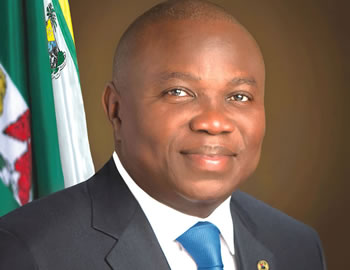Since the seventh Lagos State Climate Change Summit in 2015, where salient decisions were arrived at, environmentalists and other stakeholders are urging the resumption of the summit, or in the alternative, look at the various suggestions made over the years.
Dr Kamil Usman, an environmentalist stated that “But those of us that attended the last summit could vividly remember what the immediate past Governor, Mr Babatunde Fashola, said at the event and I quote: “…The only thing I can add is to make a request, that as I yield the baton of governor to our Governor-elect, Mr Akinwunmi Ambode, you must not drop the baton.”
Also, another group, “Green Initiative”, noted that effort at tree planting has gone down drastically, while parks and gardens that were vigorously pursued by the past administration seemed not to caught the attention as it ought to be.
“I urge you to even give more support to him and his team to continue this awareness about the danger to the environment and evolve mitigation and adaptation strategies that will help all of us survive and realize the various aspirations that we have”, he said, quoted Fashola.
According to Dr. Usman, experts from various countries, including the representatives of British High Commissions and her Denmark’s counterpart, among others, highlighted how Lagos is susceptible to climate change.
“We heard from Conservation International in that epical documentary, that nature and the environment do not need us, but we need them. This is a fundamental issue that we must concern ourselves with”, said Usman.
He said the annual forum which had in attendance over 700 stakeholders, maintained that Lagos as a mega city, must commit to addressing greenhouse gas emissions reduction; including introducing controlled parking zones to deter the use of private vehicles and establishment of carbon registry to monitor GHG emission levels.
These recommendations, according to him, were in a 24-point communique issued at the end of the summit.
But one of the area where the present administration is adjudged to be doing well is the transportation sector, which another stakeholder, Mr. Michel Andrew, also an environmentalist gave Ambode a pass mark.
Andrew said part of the recommendation was that the state should enlarge its mass transit programme to an integrated, coordinated and functional public mass transport system which will have complimentary road furniture and a comprehensive urban transport policy driven by empirical research. They noted that urban development should be controlled through appropriate measures that will reduce dependency on motorised vehicles and reduce the increasing need for urban infrastructure.
“From all indication, government is doing fantastically well in the transportation sector. But we believe there are lot to be done in the area of flooding and illegal dredging”, he said.
Also, another group, “Green Initiative”, noted that effort at tree planting has gone down drastically, while parks and gardens that were vigorously pursued by the past administration seemed not to caught the attention as it ought to be.
“There is need to showcase the benefits of tree planting initiative, as a climate change mitigation and adaptation measures to other parts of the country. The past summit enjoined the state to look into the feasibility of enriching its remaining forest areas in the context of REED+ to create financial value for carbon stored in forest.
“This measure was recommended to address the drivers of deforestation, enhance its carbon sequestration for climate change mitigation and even provide additional means of livelihoods for the concerned communities”, he said.
But another important area of concern in the seeming absence of climate change information management system in which all research outputs are catalogued and widely disseminated on a regular basis.
“We are of the view that technology should be put in place to reduce GHG emissions from waste. Besides, higher institutions should be encouraged and involved in the development of climate change mitigation technology, while the state needs to pursue a strategic alignment with the private corporate organisations in its fight against climate change and promote research and development.
You May Also Like:
Paying for our climate: Nigeria should do more on financing climate goals
Paying for our climate: Nigeria should do more on financing climate goals






